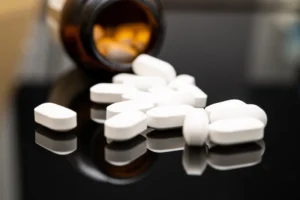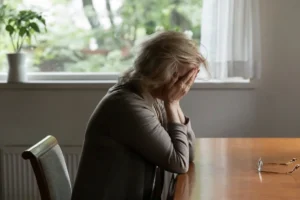Opioids belong to a group of synthetic painkillers that are analog to opium. The drug group is often prescribed to patients who are terminally ill or have recently undergone surgery.
When taken as prescribed, opioids work efficiently and help medical staff and patients treat major physical pain; however, due to their addictive potency, patients may be at a high risk of dependency when taken differently than directed by a doctor.
The Opioid Epidemic
In America, opioid addiction is considered a crisis and a serious social problem. The issue has been ongoing for a few years now.
Although measures are being taken to relieve the crisis, the damages have already spread out across the country. Over 16,000 people died from it in 2020, making up around 16% of all drug-related deaths since 1999.
One of the reasons behind the epidemic could be the thin line between opioid use and abuse.
It can be very easy for a patient to take a prescription different than directed by a doctor, particularly if the patient is in grave pain and is seeking relief.
This may catch many patients and families by surprise, not paying proper attention until it may be too late for the addict
Learning and understanding what are the signs someone is abusing opioids and which are the opioid abuse symptoms can help us gauge if someone we care for is using the medication could be at risk of addiction.
Recognizing Opioid Abuse
Once an addict has walked down the path of abuse for long enough it may become clear to those around them that there could be an underlying problem; however, its important to be able to recognize signs and symptoms that will allow us to help our loved ones early on.
If someone is taking opioids as a prescription, it can be difficult to determine whether they are abusing them. People with opioid use disorders are often able to conceal their addiction in the early stages.
So what are the signs someone is abusing opioids?
Opioid addiction signs can be identified by observing behaviors as well as physical opioid addiction symptoms that may occur.
Behavioral Opioid Addiction Signs
Behaviors are one of the best ways to determine opioid abuse symptoms.
The following behaviors can be observed when someone is abusing opioids:
- Taking opioids in excess of what is prescribed by your physician
- Having opioid cravings
- The patient lies about their pain in order to get more medication
- Purchasing extras as “backups” or taking them just in case
- Slashing out negatively and being hostile due to mood swings
- Difficulty sleeping or sleeping for too long
- “Losing” medication
- Medication runs out too quick
- Abnormal fatigue
Physical Symptoms
Behaviors are not the only way to notice if someone we love may be abusing opioids, there are many physical opioid abuse symptoms that could point to a problem. They include:
- Pinpointed pupils
- Slurred speech
- Constantly appearing spaced-out or drowsy
- Slower movements
- Low blood pressure
- Low body temperature
- Feeling euphoric
- Shows withdrawal symptoms
Cognitive Symptoms
The term cognitive impairment refers to the inability to recall and learn new things, concentrate, or make decisions that can have a significant impact on daily life.
- Thinking slowly
- A lack of judgment and difficulty solving problems
- Distancing oneself from the environment
- Concentration problems
Psychosocial Opioid Addiction Signs
Psychosocial opioid abuse symptoms deal with the relationship between individual thought and behavior and social factors.
The following are examples of psychosocial opioid addiction signs:
- Fluctuations in emotions
- Outbursts that are sudden and unprovoked
- Stress and irritability
- Feeling depressed
- Sense of paranoia
Dilemma of Morality
Family and friends may feel compelled to assist their loved ones when they are in pain, which poses a strong moral dilemma.
They may feel compelled to help their loved ones and in doing so they may overmedicate them. They may also enable them beyond their treatment.
While loved ones may come from a place of love, care, and compassion, it’s critical that they pull the strength needed to resist overmedicating. If the pain deems it necessary then a doctor should be consulted. Opioid addiction symptoms should not be ignored, if they are present, let the doctor know.
Where to Get Professional Help
If you are noticing signs someone is abusing opioids you must not waste time, it’s important to contact an addiction expert as soon as possible to discuss the options available for the addict.
An early catch may certainly alleviate the situation.
Ava Recovery is a luxury rehab located in Buda, Texas – right outside of Austin. Ava offers a world-class luxury experience at their evidence-based, drug and alcohol rehab facility. Ava Recovery is a luxury opioid addiction recovery center.
Contact Ava to speak to a specialist and find the treatment that’s best suited for you or your loved ones.






